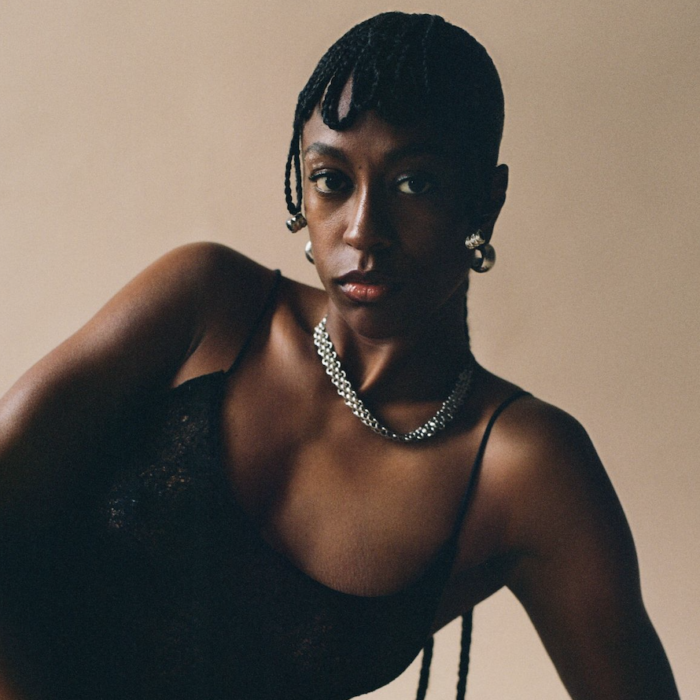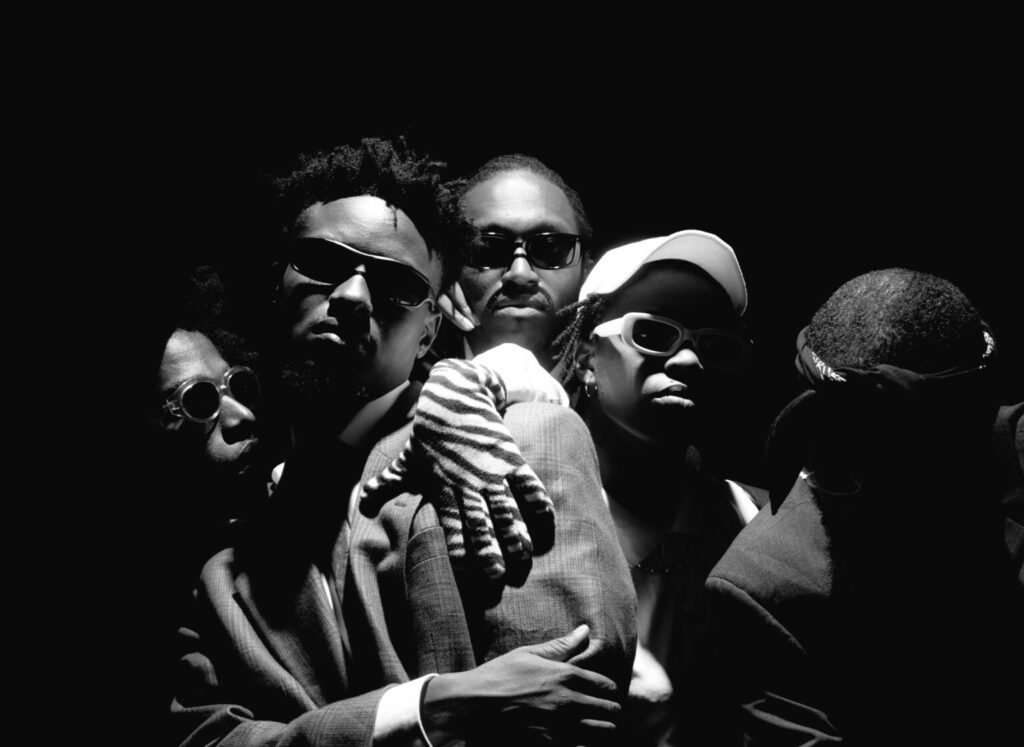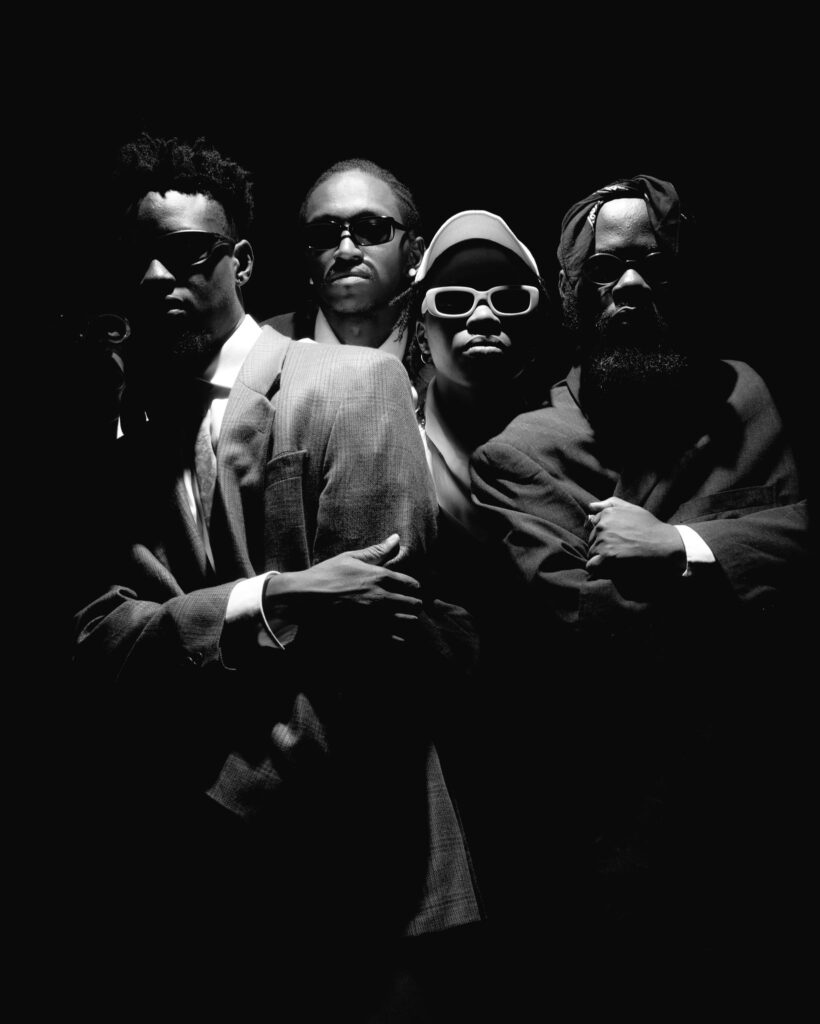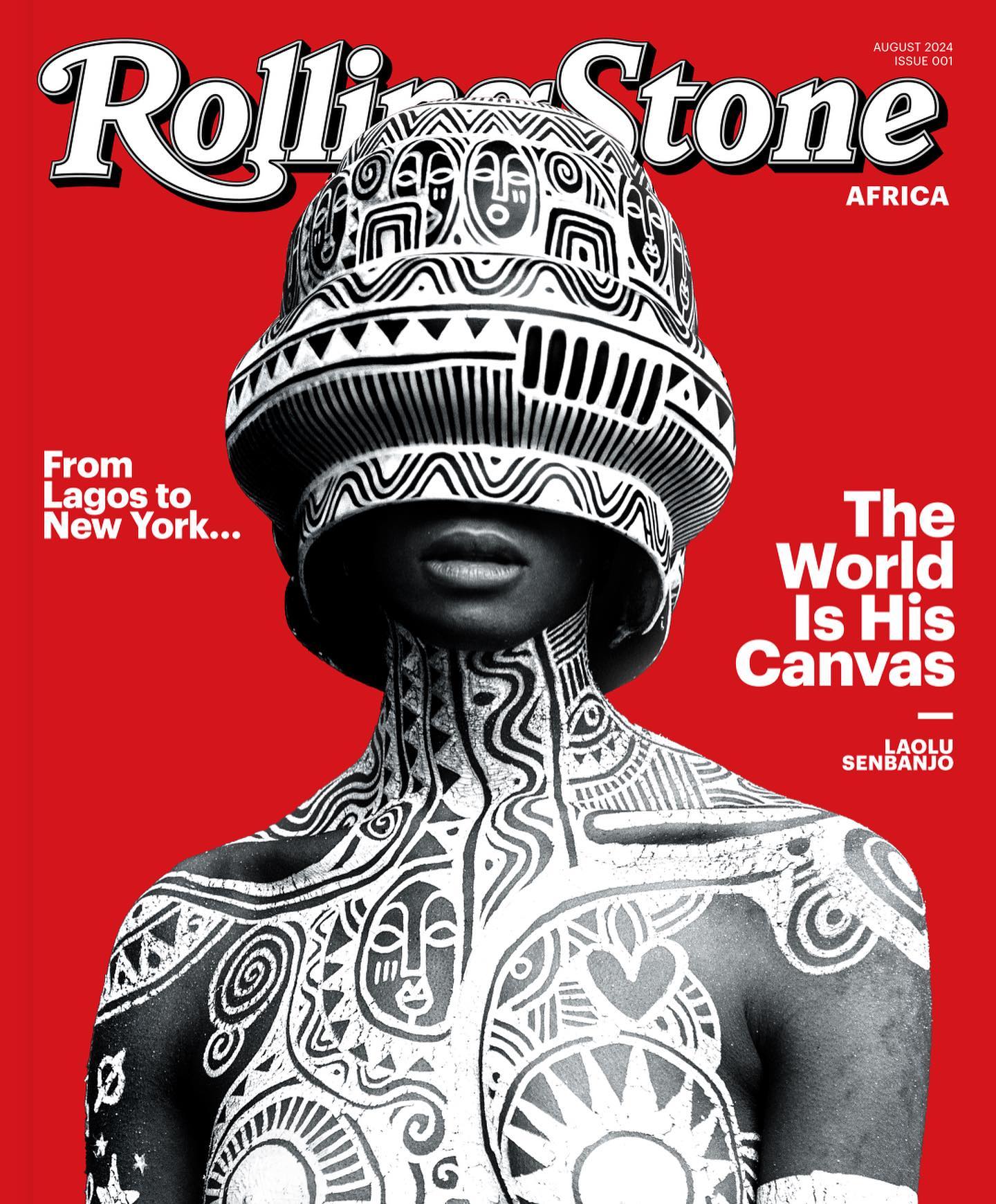


When I speak to the SuperJazzClub collective on a Friday afternoon, their calls come in from a flurry of time zones—some in Accra, some in Texas, some in Germany. It’s this same plurality which speaks to their genre-bending, maybe even genre-breaking music: a heady blend of jazz, rap, electronic, indie-rock, traditional Highlife and Hiplife that is impossible to pinpoint.
Originally from Ghana, the group’s approach is true to the singular creative energy bubbling from their native country. With West African music more prominent than ever right now, realised in the explosion of Afrobeats worldwide, it’s as if there’s something in the Ghanaian air that produces genre-benders (see: the likes of drill-riffing rapper Black Sherif or R&B-blending songstress Amaarae). That same trend is realised in the group’s multidisciplinary approach to creativity, spanning filmmaking, photography, music composition and more.
This year has seen them steadily on the rise after the release of MONOCHROME RADIO, an EP with five blistering tracks that blend their unique musical perspectives—all six of them. Tracks like “Off” blend synths, electronica and uptempo rhythms, while “Uno” sees them team up with London’s BenjiFlow for a liquid-smooth dancefloor jam. We caught up with each member of the group—BiQo, Øbed, Seyyoh, Joeyturks, Tano Jackson and Ansah Live—to discuss their unique sound, their ongoing rise, Ghana’s exciting creative scene, and more.
Rolling Stone Africa: Your EP, MONOCHROME RADIO, came out back in June—how have you felt about the reception so far?
Ansah Live: The feedback has been really good. When we made this EP, we wanted it to be a collection of songs people everywhere could relate to. Since we’ve released, we’ve had lots of positive feedback from people from all over the world—from Accra to here in the UK, Paris to certain places in Asia. It’s done really well in the way we wanted it to.
What’s the meaning of the title?
Tano Jackson: So, MONOCHROME RADIO is actually taking grayscale or monochrome as a colour palette to represent what we’re trying to say visually, and also sonically. When you think of the word ‘monochrome’, when we go back in time, you see a lot of visuals that come out as black and white. We’re trying to create a time-capsule, like a timestamp from way back but, in this case, it’s in the present.
What led you to gravitate to the style of music you guys are making now? How did the group shape its sound over time?
Tano Jackson: I think it’s more of an individual approach before a group approach. So, personally, it’s a mix of the records that my parents used to play—Tracy Chapman, Janet Jackson—and modern artists I ended up listening to, like The Internet and Tyler, the Creator. But having conversations with everybody in the collective, you notice that they have great taste in music, and the whole aesthetic of what we put out came pretty naturally. So it’s pretty much always changing, and always evolving into something different.
Your music is often very creatively free-sounding. What kind of atmosphere or headspace do you want to create for listeners when they hear your music, or even for yourselves when making it?
Øbed: I personally think of something psychedelic, also very meaningful and sombre. That’s the kind of mood SuperJazzClub portrays to me. It’s very melancholic.
Ansah Live: In my own experience, as a fan of music, I find that the songs I come back to are the ones that give me a certain sense of imagery in my head. So when we make music as SuperJazzClub, people can listen to it, form their own imagery and have their memories attached to it. With this EP, the point was also to put people on to the things that we grew up listening to, so a lot of Hiplife music, a lot of early 2000s Ghanaian music—this is where a lot of the influences were picked from.
You’re sort of tapped into this growing community of artists who are making quite experimental, rule-breaking music. What do you feel about genres? Are there certain elements that typically influence your work as a group?
BiQo: The idea of genres is really played out. I feel like artists should allow themselves to be surrealist, which is mostly just tapping from their conscious and being free in your creative approach. That translates into what we bring out as SuperJazzClub.

Ghana, in particular, seems to be a place that produces a lot of genre-blending artists. How inspired are you by what’s happening locally?
Ansah Live: In Accra, there’s just this creative energy that seems to pick things from everywhere and put it together. I don’t know where we get it from. And since we started as a collective, there have been a lot of other groups that have come up since then. So for us, as SuperJazzClub we’re very much in-tune with what happens on the ground, like who’s recording what, who’s putting out what, and who we can collaborate with.
Let’s get to your backstory: how did you all meet each other?
BiQo: The SuperJazzClub came together through different interactions. Some of us met in our neighbourhoods, some of us went to school together, some of us met in church. I met Ansah during a radio show; Jackson and Øbed went to church together; Seyyoh and Ansah met through a producer friend, so it’s really friends of friends and different situations. But the common thing that brought all of us together was the love for good music.
It’d be great to hear about some of your own individual experiences with music. How did you discover that you had a love for music?
Joeyturks: Way back when I was in junior high school, the slightest time I got, I just started drumming on desks. I used to rap too, but none of these niggas know that [laughs]. I used to play [desk] drums to the point that my pen ink would mess up my dress. And then watching music festivals—I used to watch Montreux Jazz Festival when I was a kid. Seeing myself being on the same stage sounded surreal to me.
Seyyoh: Before SuperJazzClub, I was making music on my own. But I grew up around music. My parents loved it and would play a lot of Highlife and Hiplife, and I used to write songs. I remember going into my cousin’s room as a kid—he had all the CDs—and I had a notebook where I would listen to the songs, try to write the lyrics down, play them back and sing them because I wanted to figure out the lyrics. I even saved up to buy a guitar when I was in university, all because I wanted to make music.
This is a mixed gender collective. For you, Seyyoh, how is that in terms of the dynamic of the group? What’s it like being the only girl?
Seyyoh: When we started SuperJazzClub, I didn’t really consider that—it didn’t really click to me that it’s just a bunch of dudes! I didn’t really have a community of people that were making the kind of music I was making; it was just me doing my own thing. But when I met these guys, it was like, “Oh! These are people that connect with me on that level.” It’s like having five brothers, which can be a lot! But I think I’m doing pretty fine.
What are some of your favourite things about your releases?
Ansah Live: It’s that you can’t really predict what we’re going to put out next, especially if you’re basing it on what we already put out. Even us sometimes, we don’t know where it’s going to go. And I guess that’s what makes it exciting; it’s unpredictable, experimental.
What would you like people to know about SuperJazzClub that they don’t know already?
Øbed: I want people to know that Africa and Ghana is more than what they imagine it to be. Just making art that transcends where you come from is what’s getting to people about our music.

© Copyright Rolling Stone Africa 2024. Rolling Stone Africa is published by Mwankom Group Ltd under license from Rolling Stone, LLC, a subsidiary of Penske Media Corporation.
By providing your information, you agree to our Terms of Use and our Privacy Policy. We use vendors that may also process your information to help provide our services.
By registering for our sites and services, you agree to our Terms of Service (including, as applicable, the mandatory arbitration and class action waiver provisions) and our Privacy Policy.
We use vendors that may also process your information to help provide our services.
This site is protected by reCAPTCHA and the Google Privacy Policy and Terms of Service apply.
By providing your information, you agree to our Terms of Use and our Privacy Policy. We use vendors that may also process your information to help provide our services.